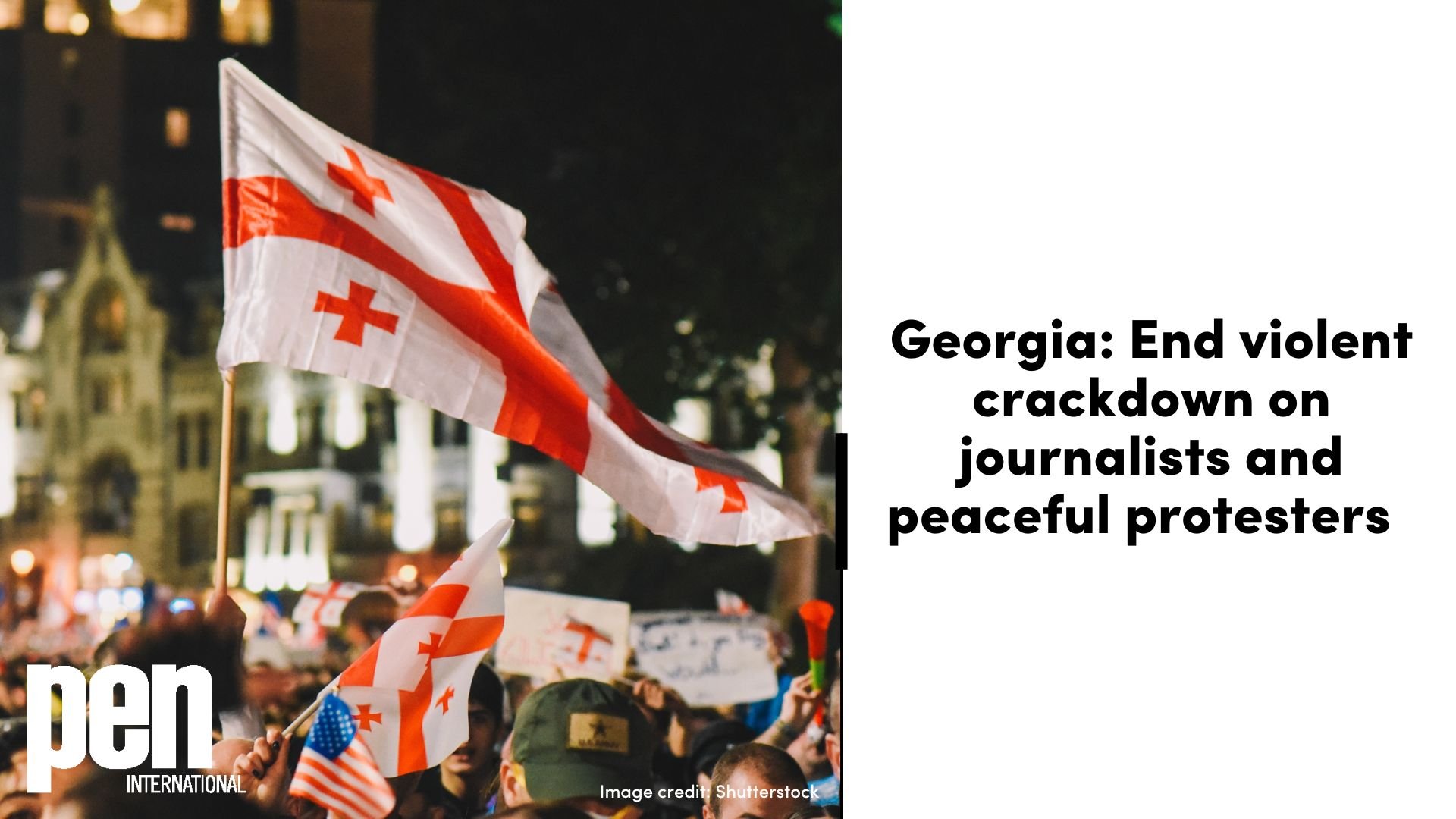Georgia: End violent crackdown on journalists and peaceful protesters
‘The Georgian security forces’ ongoing assault on peaceful protesters and journalists – including brutal beatings and arbitrary arrests – is of grave concern. We urge the authorities to uphold the human rights of protesters, to ensure a safe and enabling environment for members of the press, and to hold all perpetrators of torture and other ill-treatment to account.’ Ma Thida, Chair of PEN International’s Writers in Prison Committee.
04 December 2024 – The Georgian authorities must urgently end their brutal crackdown on peaceful protesters and fully uphold the right to expression and peaceful assembly, PEN International and PEN Georgia said today, as protests continue to be met with police violence across the country. PEN International and PEN Georgia call for prompt, impartial and thorough investigation into all instances of force used, and accountability for unlawful use of force by police, including acts of torture and other ill-treatment. All those held merely for peacefully protesting must be immediately and unconditionally released.
On 28 October 2024, Prime Minister Irakli Kobakhidze announced that Georgia would pause its accession to the European Union until 2028, in response to a European Parliament resolution denouncing Georgia’s parliamentary elections on 26 October as having ‘numerous and serious electoral violations’, which ‘[could not] be considered as free and fair’. The resolution notably called for the elections to be re-run within a year under international supervision. Thousands of pro-EU protesters subsequently took to the streets in Tbilisi, with protests spreading across the country. According to media reports and human rights groups, protests were violently dispersed by law enforcement officials, who fired water cannons and tear gas at protesters. Men wearing balaclavas were seen running into the crowds and beating individuals. Journalists reported being deliberately targeted by security forces, with several brutally attacked and requiring hospitalisation. The Ombudsperson of Georgia called for an end to ‘revenge and intimidation’ by law enforcement officials, denouncing acts of torture and other ill-treatment.
PEN Georgia documented the brutal beating of Zviad Ratiani, a poet and translator, by police on 29 November in Tbilisi. Ratiani – who suffered serious injuries, including fractures to his nose and back – was sentenced to eight days of administrative detention by the Tbilisi City Court on 2 December on alleged charges of petty hooliganism and disobeying lawful police orders (Articles 166 and 172 of the Administrative Offences Code of Georgia). Also on 2 December, Georgia’s Interior Ministry announced that 224 protesters were being detained on administrative charges and three were arrested on criminal charges. Amongst those detained is Tornike Chelidze, a poet and teacher, who was severally beaten by police and sentenced to a seven days’ administrative detention, also on alleged charges of petty hooliganism and disobeying lawful police orders
The latest protests in Georgia erupted against the backdrop of increasingly repressive Russia-style legislation put forward in recent months by the ruling Georgian Dream party, which has also overseen a violent crackdown on dissent. In September 2024, Georgia’s Parliament adopted a Family Values bill that notably prevents journalists from reporting on LGBTI issues and bans public gatherings that the law describes as ‘promoting LGBT propaganda’. A ‘foreign agents’ law adopted in May 2024 despite mass protests marred by police violence compels organisations receiving more than 20% of annual funding from sources outside Georgia – including PEN Georgia – to register as ‘organisations pursuing the interests of a foreign power’ and face draconian reporting requirements.
Under international human rights law, states have an obligation to facilitate peaceful assemblies. Any use of force must comply with fundamental principles of legality, necessity, proportionality, precaution and non-discrimination, and those using force must be accountable for each use of force. PEN International and PEN Georgia urge the Georgian authorities to abide by their international obligations and to immediately put an end to police violence and investigate unlawful use of force. All those held for exercising their rights to freedom and expression and peaceful assembly – including Zviad Ratiani and Tornike Chelidze – must be immediately and unconditionally released.
Note to editors:
For further details contact Aurélia Dondo, Head of Europe and Central Asia Region at PEN International: [email protected]

